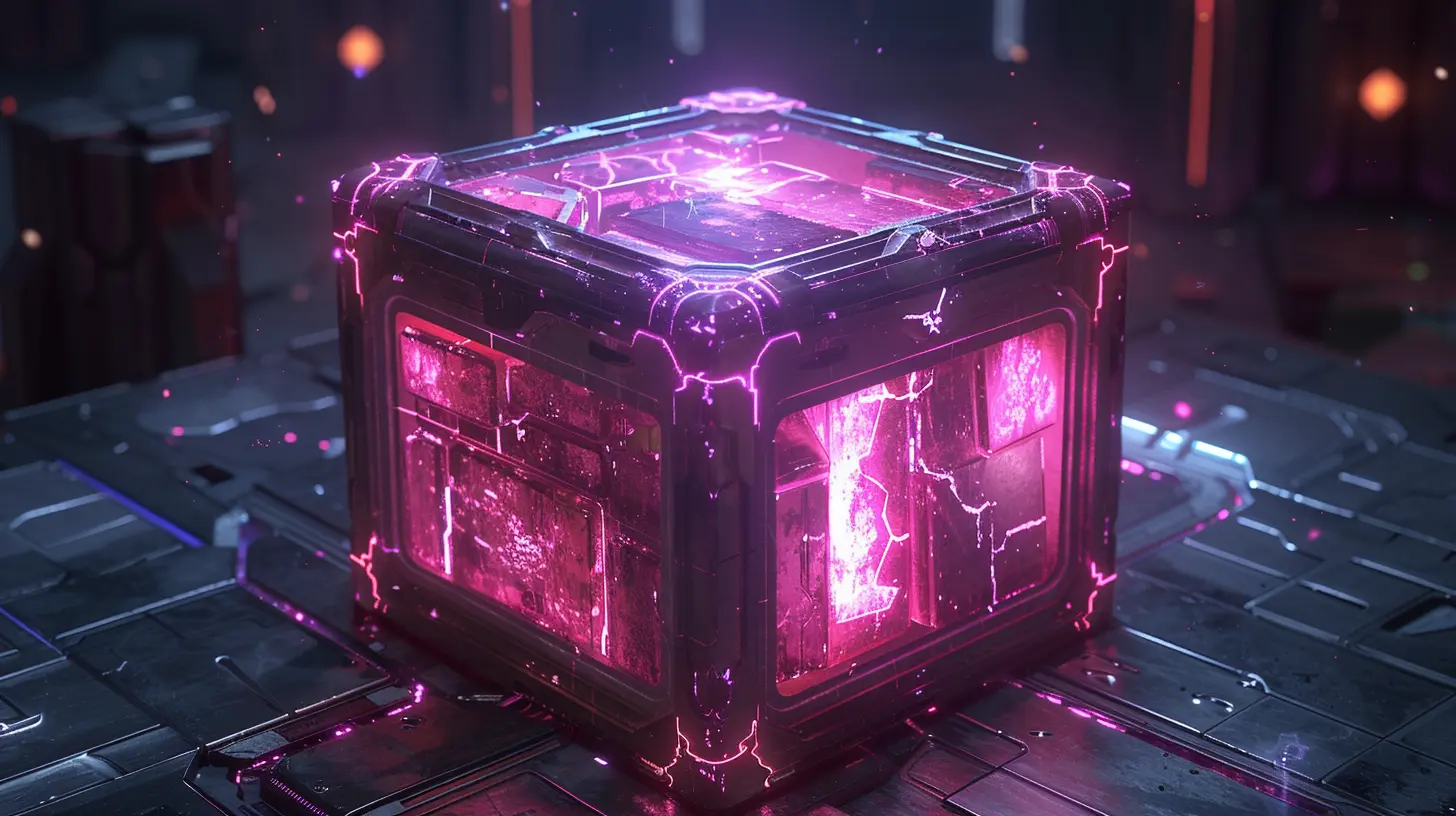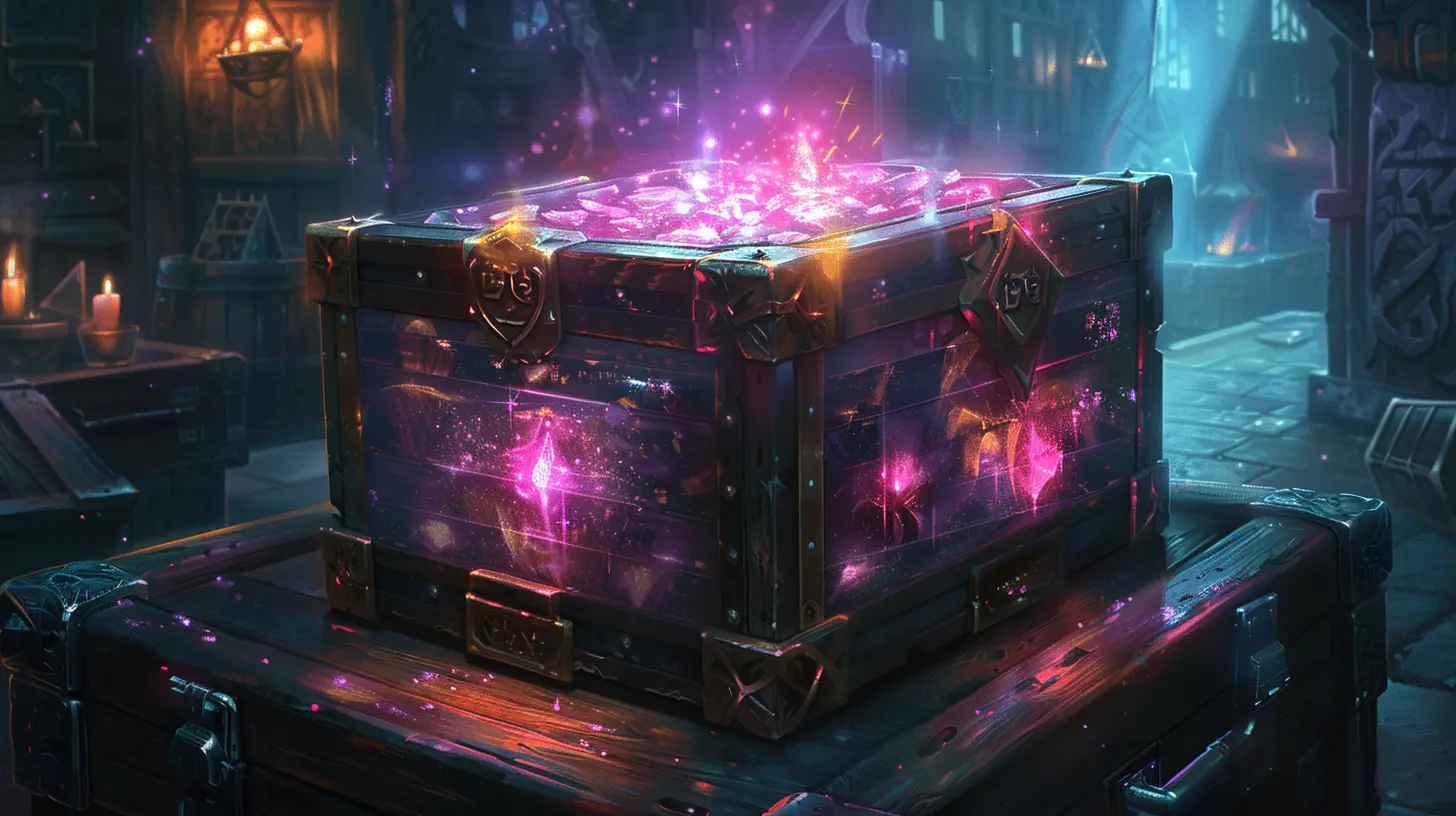Are Loot Boxes Changing the Way We Play Multiplayer Games?
8 November 2025
If you’ve spent any time playing multiplayer games in the past few years, you’ve probably cracked open a loot box or two (or twenty—no judgment). Whether it’s unlocking flashy skins in Overwatch or rare weapons in Apex Legends, loot boxes have become almost impossible to ignore. But the real question is—are they just harmless fun or are they fundamentally changing the way we experience multiplayer gaming?
Let’s dive into the pixelated rabbit hole.
What Exactly Are Loot Boxes?
If you're new to gaming—or just haven’t kept up—loot boxes are virtual items you can open to receive randomized in-game content. Think of them like digital vending machines: you put something in (usually time or money), press a shiny button, and wait to see what pops out.Sometimes you strike gold. Most of the time, though? Not so much.
They often include cosmetic upgrades (like character skins or voice lines), but in some titles, they grant game-altering gear. That’s when things get tricky.
The Evolution of Loot Boxes in Gaming
Believe it or not, loot boxes aren't a modern invention. The earliest forms popped up in Asian free-to-play MMOs back in the 2000s. But things got real when Western titles like FIFA and Overwatch started baking them into their core gameplay loops.Fast forward to today, and loot boxes have become a multi-billion-dollar industry. And let’s be honest—game developers aren’t letting go of that cash cow anytime soon.
How Loot Boxes Hook Players (Yep, It’s Psychology 101)
Ever gambled a little bit hoping to hit the jackpot? That little thrill you feel when the loot box opens is no accident—it’s by design. Game developers use principles from behavioral psychology, like variable ratio reinforcement, to keep us coming back for more.That “maybe I’ll get something amazing next time” feeling is straight-up dopamine manipulation. It’s the same tactic slot machines use. Creepy, right?
Changing the Core of Multiplayer Gameplay
Here’s where the real change starts sneaking in. Loot boxes aren’t just shiny distractions—they’re rewriting the way multiplayer games are structured.1. Shift Toward Grind or Pay Models
Back in the day, you unlocked stuff by leveling up or completing challenges. Now? Many multiplayer games nudge you toward either grinding for hours or pulling out your wallet.Games like Call of Duty: Warzone and Apex Legends have made this the norm. You either pour in dozens of hours to unlock loot or pay to speed things up. That “free-to-play” label? Sometimes it’s just code for “free-to-download, but good luck feeling competitive without spending.”
2. Skill vs. Wallet: The Competitive Imbalance
In some games, loot boxes go beyond cosmetics and affect gameplay through weapons, upgrades, or perks. Suddenly, it's not just your skills facing off against other players—it's their credit cards, too.This undermines the competitive spirit. Imagine playing basketball, but your opponent paid for spring-loaded shoes. Fun? Not so much.
3. Social Status and Cosmetic Peer Pressure
It may sound silly, but cosmetics matter in multiplayer communities. People flex their rare skins like trophies. If you’ve got the standard gear, you stick out like a sore thumb.Loot boxes feed into this pressure. Players want to feel unique, or at least not invisible. So they chase rare cosmetics—sometimes obsessively. It’s digital clout, and everyone wants some.
Are We Still Playing, or Are We Just Gambling?
This is where the ethical gray zone gets darker. A lot of loot boxes look, feel, and function a lot like gambling. There’s money involved, randomness, anticipation, and reward. And it’s especially concerning when you realize how many kids play these games.Countries like Belgium and the Netherlands have already banned loot boxes that offer randomized rewards for real money, labeling them as gambling. Other nations are investigating and pushing for stricter regulations.
Let’s not sugarcoat it: if your game relies on random rewards purchased with real money, you're dancing on the edge of gambling behavior. And that’s affecting how people engage with multiplayer games, especially younger audiences.
FOMO and Event-Based Loot Boxes
Multiplayer games love their seasonal events—winter skins, Halloween-themed emotes, limited-time loot boxes. These are designed to tap into one powerful emotion:Fear of Missing Out.
FOMO makes you feel like you need to log in, need to buy that loot box, and need to stay competitive. It turns gaming from a fun weekend hobby into a stressful obligation. “If I miss this, it’s gone forever!”
And let’s be real—it works. FOMO is one of the strongest motivators in modern multiplayer play.
The Rise of Battle Passes: A Response to Loot Box Backlash?
After years of complaints, some developers started moving away from traditional loot boxes. The new favorite? Battle passes.They still monetize the game, but instead of random drops, you earn content through progression. Players know what they're getting and when. It’s more transparent and, frankly, a lot more satisfying.
Fortnite, Valorant, and even Halo Infinite have embraced this model. It's a step in the right direction—less gambling, more rewarding.
Loot Boxes and the Future of Multiplayer Design
So what does all this mean for the future of multiplayer games?Loot boxes aren’t going away overnight. But the backlash is growing. Players are getting savvier, governments are stepping in, and game studios are rethinking how they design progression systems.
The good news? There’s a growing audience for fair, balanced, transparent multiplayer games. Developers who listen to that demand will shape the future of gaming.
Imagine a world where your effort—not your wallet—determines your success. Feels refreshing, doesn’t it?
What Can Players Do?
As players, we actually have more power than we think. Here are a few things we can do:- Vote with your wallet – Don’t support games with abusive loot box systems.
- Promote transparency – Support developers who offer clear content paths.
- Stay informed – Understand the psychological tricks games use.
- Talk about it – The more we discuss these issues, the more pressure there is to change.
Final Thoughts: Are Loot Boxes Ruining Multiplayer Games?
Let’s not get too dramatic—loot boxes aren’t ruining multiplayer games across the board. Some games handle them responsibly. Others? Not so much.But what’s clear is this: loot boxes are absolutely reshaping how we play. They’ve blurred the lines between gaming and gambling, changed how we progress, and introduced pay-to-win elements in some otherwise great titles.
As players, we need to stay sharp. Recognize the difference between excitement and exploitation. Enjoy the game, but know when the game is playing you.
Who knows? Maybe the next big multiplayer hit won’t need loot boxes at all. Fingers crossed.
all images in this post were generated using AI tools
Category:
Loot BoxesAuthor:

Jack McKinstry
Discussion
rate this article
1 comments
Zayla James
Loot boxes introduce a compelling blend of chance and reward, reshaping multiplayer dynamics. While they enhance engagement and monetization, they also risk fostering exploitative practices and diminishing genuine skill-based competition. The challenge lies in balancing enjoyment with ethical considerations, ensuring that gameplay remains fair and immersive for all players.
November 9, 2025 at 5:38 AM

Jack McKinstry
Thank you for your insightful comment! You highlight key points about the balance between engagement and ethical considerations in loot box mechanics, which is essential for maintaining fair and enjoyable multiplayer experiences.


